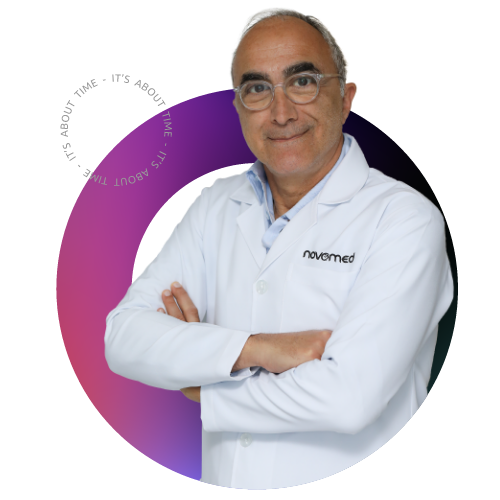Polyps form when an abnormal mass of tissue grows on the lining of a hollow space or organ. Polyps can develop almost anywhere in the body, from the colon, uterus and stomach to the nose and vocal cords. They are worrisome since they are linked to cancer and can develop into malignant tumors.
Most polyps are asymptomatic and are discovered by chance during gastrointestinal diagnostic procedures like endoscopy or imaging. On the other hand, symptomatic polyps can cause bleeding, mucous discharge, disturbed bowel function, and even rare instances of abdominal pain.
What is a polypectomy?
A polypectomy is a minimally invasive surgery to remove polyps, or abnormal tissue growths, from the colon (the large intestine). Polypectomy surgery is a typical component of a colonoscopy in which a colonoscope, a long, flexible tube with a camera, is inserted into the rectum to inspect the colon visually. The primary objective of this procedure is to establish whether an abnormal growth is cancerous, precancerous, or benign.
Polypectomy is not technically a surgical procedure, but it can be conducted during operation if a polyp is too large or complicated to be eliminated via colonoscopy. Removing any polyp, regardless of the method, is considered a polypectomy.
Why is a polypectomy done?
Polypectomy is performed primarily for cancer prevention. While the vast majority of polyps are harmless, some, such as adenomatous polyps in the colon, can potentially develop into cancer if left untreated.
Physicians can halt the progression of cancer by removing these polyps and can also screen the removed polyp tissue for symptoms of early malignancy. This preventative step is vital for spotting diseases like colon cancer in their early, symptomless stages.
Nonetheless, polypectomy is also used to treat several other conditions, including:
- Nasal polyps: Nasal polyps are a potential source of sinus infections, respiratory problems, and a diminished sense of smell.
- Uterine polyps: Uterine polyps may cause severe menstrual flow, missed periods, and infertility.
- Stomach and esophageal polyps: While these are generally innocuous, they might cause bleeding or an obstruction.
- Vocal cord polyps: can cause hoarseness and other symptoms, as well as restrict airflow.
It is essential to remove and examine these polyps for the surveillance and prevention of:
- Colorectal cancer.
- Cervical cancer.
- Stomach cancer.
- Gallbladder cancer.
How is a polypectomy Performed?
Polyp removal is done endoscopically. Some variants are designed to fit into narrower passageways within the body. A hysteroscope is used to inspect the uterus, and a colonoscope is used to view the large intestine during a colonoscopy.
The endoscope will be inserted into your anus, cervix, or throat to reach the affected organ. To remove the polyp, your doctor will place tiny tools through the endoscope. They may use a wire snare or surgical forceps to remove the polyp. The instruments are either chilled or heated to assist in excising the polyp.
Recovery after polypectomy
The recovery period after polypectomy often varies from patient to patient based on factors like their general health, the extent and location of the polyps, and the method of removal. Minor rectal bleeding or blood in the stool is possible following the procedure, but it normally goes away after a few days.
Nevertheless, for the majority of standard polypectomies, patients can typically resume routine activities within 24 hours, albeit with slight limitations.
Typically, patients can resume their normal diet after the procedure. However, some physicians might suggest a low-fiber diet for a brief period to relieve strain on the colon.
Patient are encouraged to engage in light activities, such as walking, as soon as they are able. However, physically demanding tasks, heavy hauling, and driving should be avoided for at least 24 hours or until the effects of the sedative have worn off completely.
Book your appointment at Novomed today!
Gastroenterologists at Novomed have vast experience in diagnosing and treating a wide range of gastrointestinal disorders. For more information, book your consultation today by calling toll-free 800 (NOVO) 6686 or filling out the booking form on our website.


























